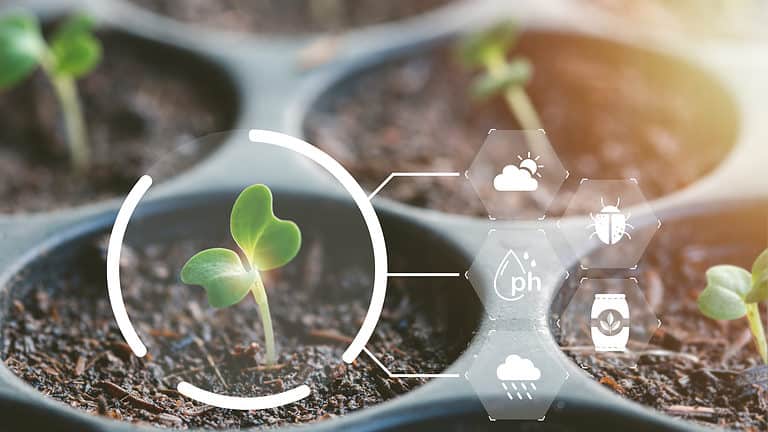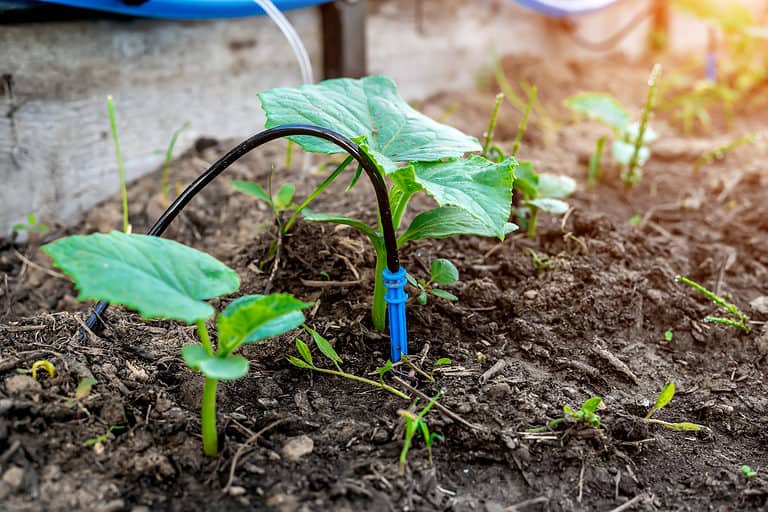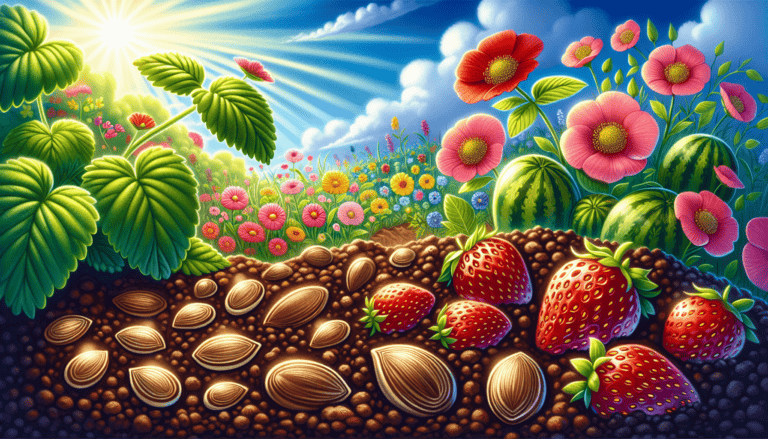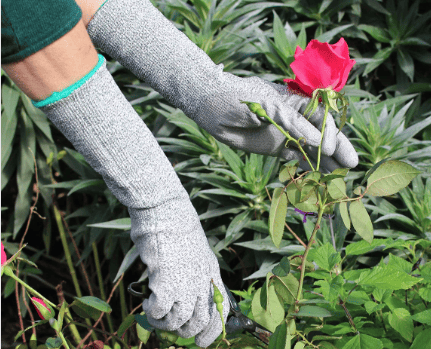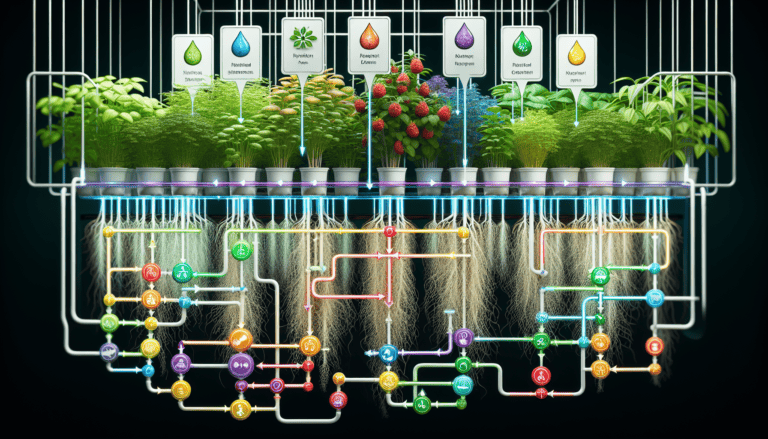Top Crops: What to Grow in December for a Thriving Winter Garden
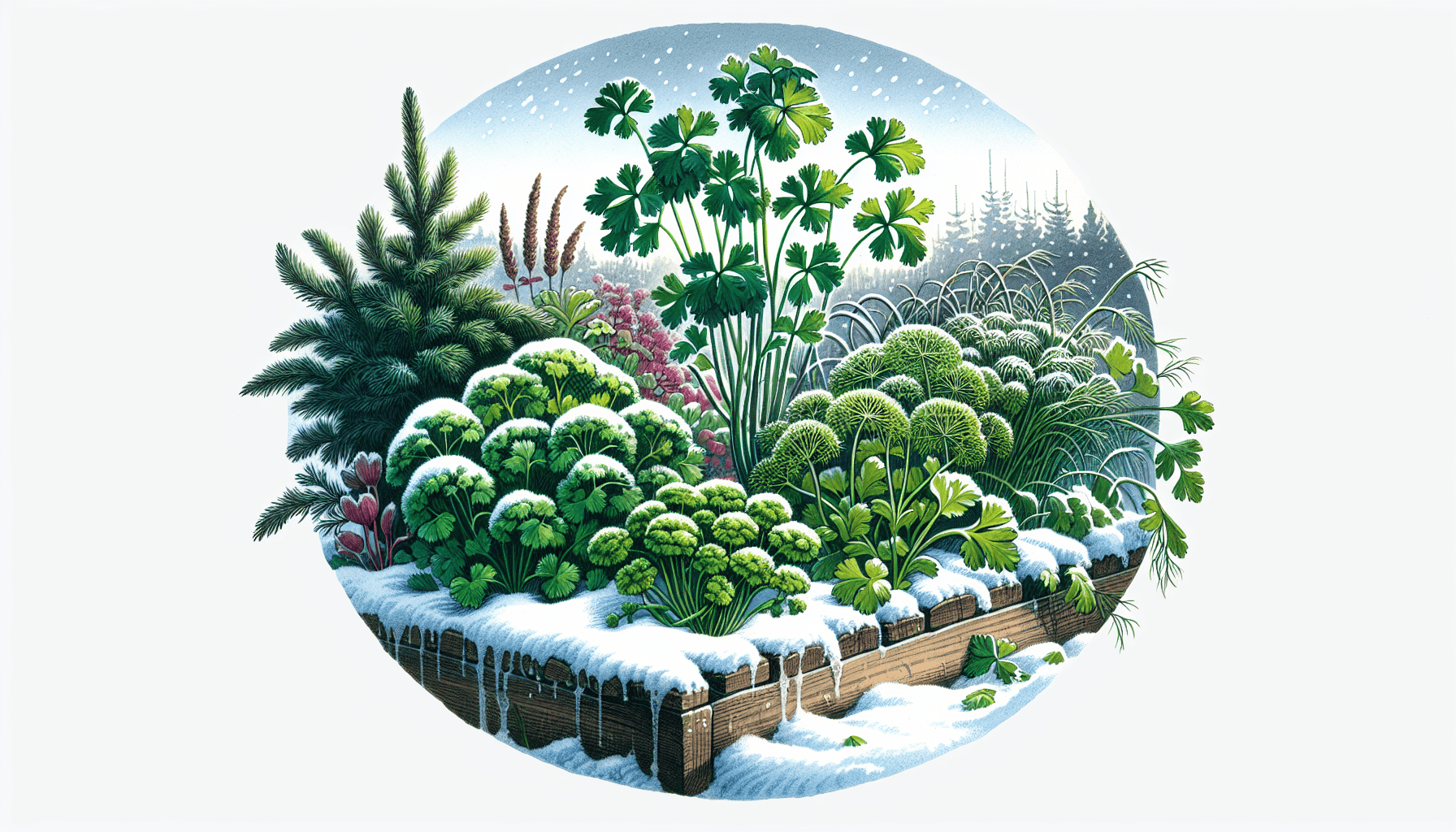
Despite the chilly weather, December presents an excellent opportunity for cultivating a variety of crops. By understanding what to plant in December, you can maximize your garden’s potential and secure a bountiful yield. This article will reveal which resilient vegetables, herbs, flowers, and fruits are ideally suited for planting during this month while providing strategies on how to shield your plants from winter’s harsh elements.
Key Takeaways
Sow hardy vegetables like carrots, spinach, and kale in December for a continuous harvest into spring.
December is perfect for planting garlic, onions, and winter herbs to ensure fresh flavors and produce all season long.
Protect your winter garden with cold frames and proper mulching techniques to extend your growing season and safeguard plants from frost.
Hardy Vegetables to Sow in December
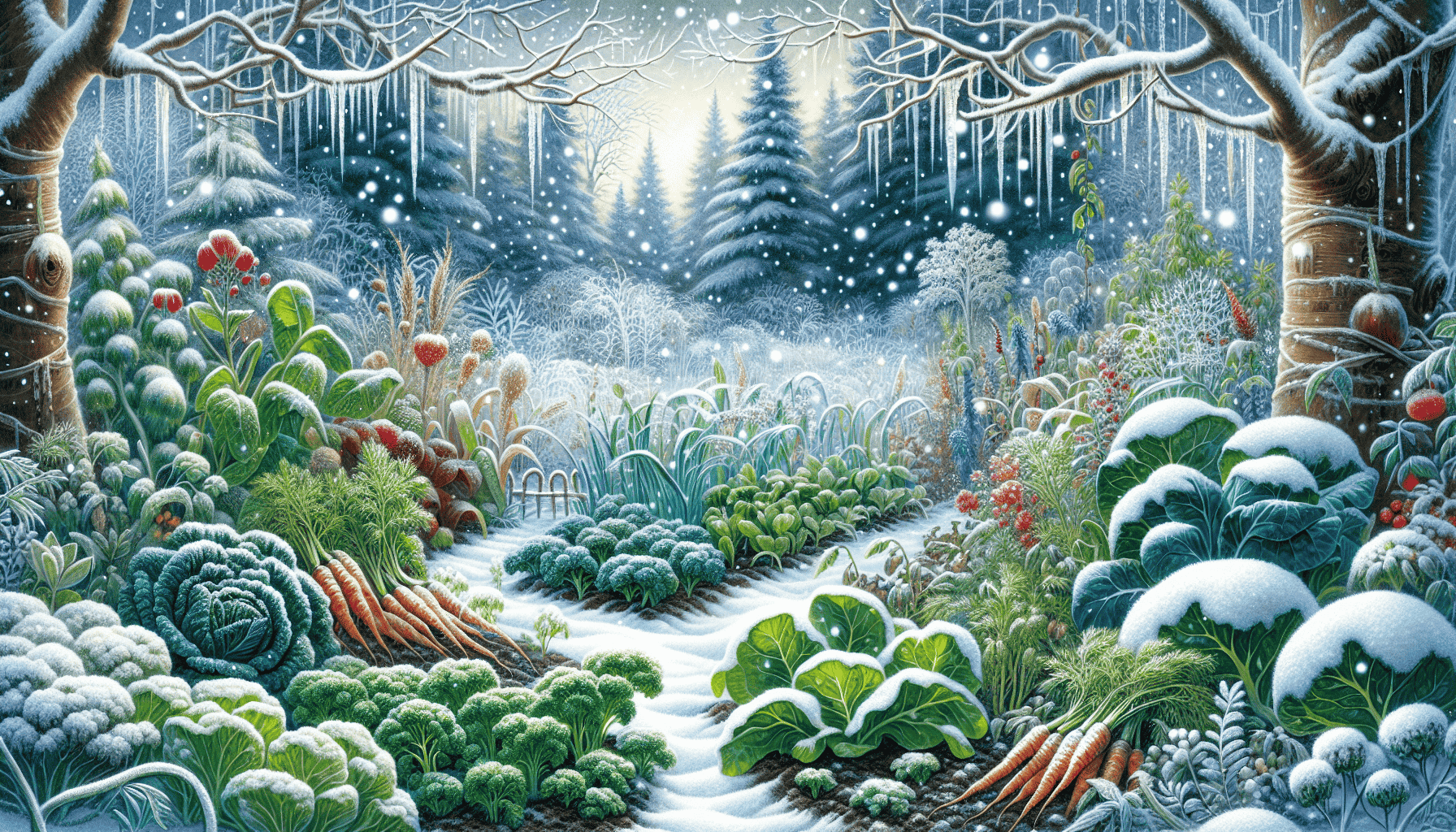
During the winter season, there exists a special chance to plant robust vegetables capable of enduring the winter cold and maturing in time for harvesting during spring. Vegetables like carrots, spinach, and kale that tolerate frost become established in your garden amidst winter’s chill and are prepared to flourish energetically as soon as the soil temperature rises.
Initiating seed sowing in December can prolong the productive period of your vegetable garden, facilitating an uninterrupted yield that stretches into both spring and summer months.
Carrots
Incorporating carrots into your winter garden can yield a delicious harvest, as these root vegetables flourish in the presence of ample sunshine and soil that allows for proper drainage. The cooler temperatures of winter, particularly when they are nurtured beneath cold frames, enhance their sweetness by allowing them to mature at a gradual pace.
Sowing carrots during December sets the stage for them to be ready by early spring, promising a delectable crop that is well worth the anticipation throughout the colder months.
Spinach
During the cold month of December, spinach flourishes when positioned in an environment that receives full to partial sunlight and is planted in soil that provides good drainage. To preserve its growth throughout winter’s harsh temperatures, spinach can be sown prior to the onset of winter and safeguarded using frost cloths or cold frames.
As a leafy green vegetable packed with nutrients, spinach serves as a valuable component for any garden during winter. It maintains the ability to yield fresh produce even amidst the most frigid part of the season.
Kale
Every winter garden should include kale, an adaptable and robust crop that excels during the chilly season. Part of the Brassica family, this plant is well-suited for frosty conditions and possesses a strong resilience to cold weather impacts. To flourish, kale needs soil that’s both moist and well-drained to ample sunlight.
If you incorporate kale into your garden by planting it in December, you can ensure a steady harvest of this nutrient-dense vegetable all through the winter months.
Planting Garlic and Onions
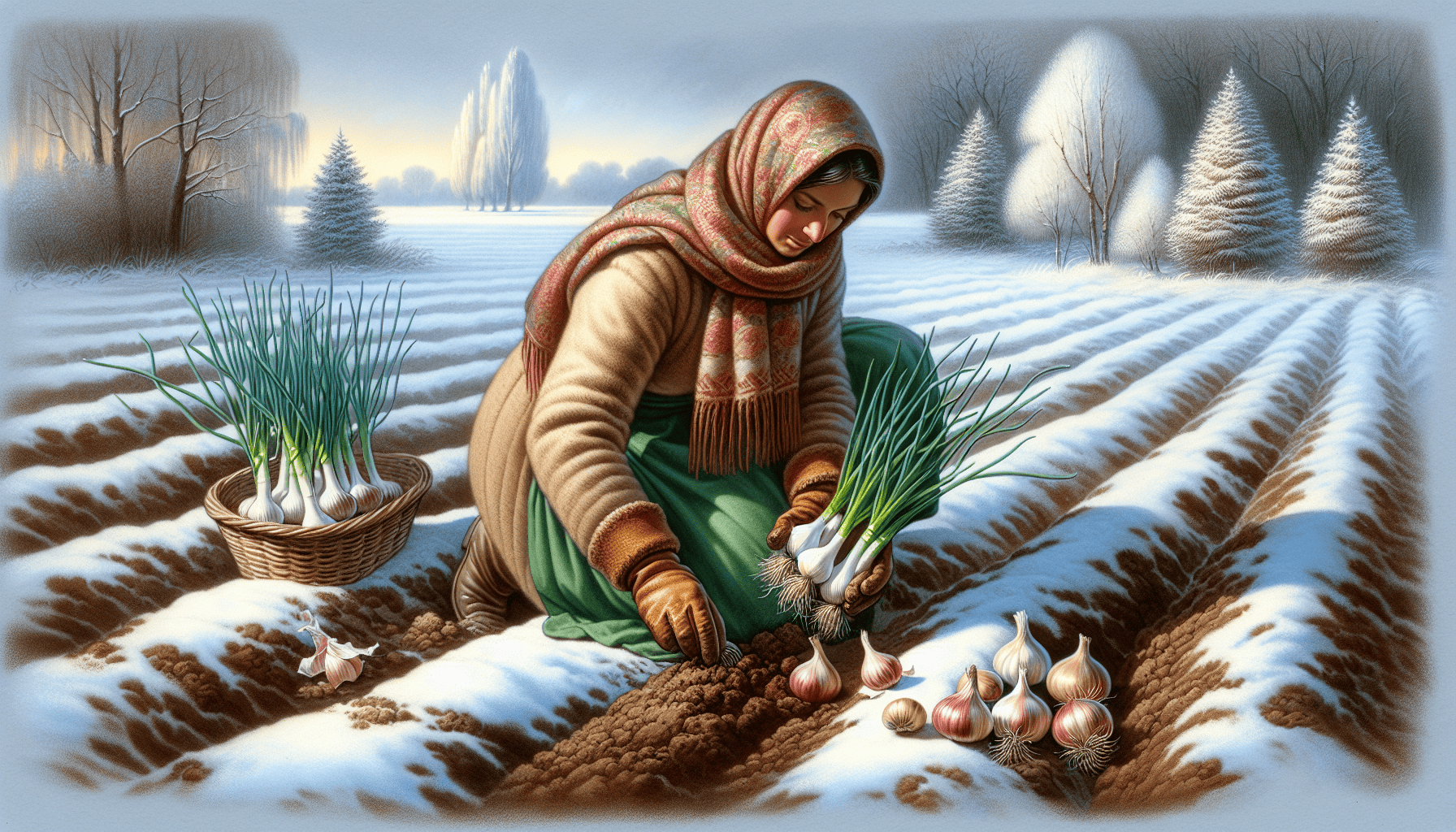
To cultivate a thriving kitchen garden, one should plant garlic sets and sow onion seeds during winter, specifically in December. This endeavor demands soil that has been meticulously prepared with the addition of organic matter to ensure optimal plant development.
In your garden, directly plant garlic sets into the ground. Meanwhile, for onions, commence their growth by sowing seeds indoors. This dual approach can yield an abundant harvest of these essential culinary bulbs year-round.
Garlic
In regions with mild climates, December is the ideal time to plant garlic sets outside. For maximum yield potential, it’s best to get the garlic into the ground before Christmas at a depth of 2.5 cm (1 inch). In areas that experience harsher winters, hard-neck varieties should be selected as they are more adept at handling cold weather.
As long as conditions are favorable, the planted garlic will gradually progress throughout winter and come to maturity when warmer temperatures arrive, ready for harvesting.
Onions
Seeds of onions can be planted indoors on Boxing Day to secure an early advantage in preparation for their springtime transplantation into the garden. A suitable mix designed for seed starting is beneficial for optimal growth.
After frost threats subside, these onion seedlings should be moved to the garden and spaced out at intervals of 10cm to facilitate adequate development and ventilation. Initiating the planting process indoors paves the way for a plentiful harvest of onions in the future months.
Winter Herbs for Your Kitchen Garden

During the winter months, incorporating herbs into your kitchen garden can bring fresh tastes and vitality to your culinary creations. Many herbs are well-suited for growth indoors or within cold frames, even as temperatures drop. Hardy varieties such as parsley, thyme, and chives flourish in wintertime conditions, offering a burst of freshness to your meals throughout the season.
There exists an array of specific herbs that are particularly conducive to being planted during winter. These choices ensure that you have access to home-grown seasoning despite the chilly weather outside.
Cilantro
During the cold month of December, cilantro emerges as an excellent herb to cultivate. It thrives in the lower temperatures and can be planted along with other winter garden favorites such as carrots, dill, and parsley.
To maintain a consistent harvest of this flavorful herb throughout winter, consider growing cilantro inside or within a protected environment like a cold frame.
Parsley
During the winter months, parsley excels in growth due to its preference for cooler temperatures. It offers a constant provision of fresh leaves throughout these colder times and is adaptable to being cultivated indoors with the option of transplanting it outdoors as weather conditions become more favorable.
By cultivating parsley, you secure an uninterrupted source of this multifaceted herb specifically for your cooking requirements throughout the winter season.
Dill
December is an excellent time for sowing dill indoors, as it sprouts quickly with the onset of warmer temperatures. It’s a superb herb that thrives when the weather heats up, perfect for harvesting in early spring.
By planting dill indoors during December, you’ll guarantee a supply of fresh and aromatic herbs at hand just in time for your culinary needs.
Flower Seeds to Start Indoors
Initiating the growth of flower seeds indoors during December can lead to an earlier display of blossoms in spring, thus brightening up gardening activities throughout winter. Cultivating these seeds within your home allows for a vibrant eruption of hues in your garden at the first hint of warmer weather.
Below is a list of particular flowers that are well-suited for indoor sowing.
Sweet Peas
Sweet peas, known for their pleasant scent and aesthetic appeal in gardens, may be planted either indoors or within a cold frame to shield them from the harshness of cold weather. To encourage a bushier growth yielding more vivid and full blossoms, it’s beneficial to pinch off the tips of sweet pea seedlings once they attain approximately 10 cm in height.
Geraniums
To achieve successful germination, spread the Geranium seeds in a heated propagator with indirect but bright lighting conditions. They should be lightly sprinkled with soil and positioned where warmth and brightness are sufficient without direct sun exposure.
By following this method, you ensure that your geraniums will be prepared to flourish at the onset of spring.
Snapdragons
Snapdragons, robust by nature, can be successfully sown in December for a garden full of blossoms come June. These adaptable plants prosper when their roots are left undisturbed, which is perfect for indoor sowing.
Initiating the growth of snapdragons indoors lays the groundwork for a colorful array of flowers during the summer season in your outdoor space.
Preparing Soil and Using Cold Frames
Ensuring that the soil is adequately prepped and utilizing cold frames are vital for a flourishing winter garden. Incorporating compost or similar organic matter can significantly enhance the soil’s composition and its ability to hold moisture, both of which benefit crops during the colder months.
Cold frames offer a controlled environment conducive to growth by creating a warmer space around plants, effectively shielding them from extreme winter conditions. Below are instructions on constructing your own cold frame as well as methods to enrich your garden’s soil with organic material.
Building a DIY Cold Frame
Constructing a cold frame from materials such as wood or repurposed windows can help generate a miniature greenhouse atmosphere for plants during the winter. This contained environment captures sunlight and safeguards against the chilly weather, thereby prolonging the growing period.
Erecting your own DIY cold frame serves as an efficient method to nurture your garden throughout the colder months.
Enhancing Soil with Organic Matter
During the winter months, it is vital to enhance soil structure and moisture retention by mixing in organic matter. Compost serves as an excellent organic addition that not only boosts the nutrient levels of soil but also refines its overall composition.
Incorporation of organic matter into the soil leads to more robust and fruitful gardens throughout the winter season.
Fruit to Plant in December

To foster a fruitful garden, December is the perfect month to plant dormant fruit trees due to improved growth and higher chances of survival. It’s imperative to select a sunny spot with soil that drains well for optimal planting results.
For those looking at what specific fruits are best planted in December, consider these choices for your garden endeavors.
Raspberries
To cultivate a tasty crop in your winter garden, consider planting raspberry canes during December. This timing allows for the establishment of strong plants that will yield fruit either in the summer or autumn season.
When setting them into your garden, make certain to plant the canes so they are slightly covered by soil. This is vital for preventing problems with their growth and ensuring a successful harvest.
Blueberries
During December, as long as the ground remains unfrozen, is an appropriate time for planting blueberries. For these plants that prefer acidic soil conditions, make sure to plant them at a depth equivalent to either the tide mark on their stem if they are bare root or at pot level if they are container-grown.
By establishing blueberry plants in December, you can anticipate an abundant harvest when the weather turns warmer.
Rhubarb
To cultivate a productive winter garden, rhubarb is an ideal choice. It thrives when planted in soil that is rich and offers excellent drainage. Opting for varieties such as Timperley Early can result in a crop ready to be harvested by February.
By positioning rhubarb into the garden during December, you are setting the stage for an early harvest of this resilient crop throughout the winter season.
Protecting Plants from Winter Weather
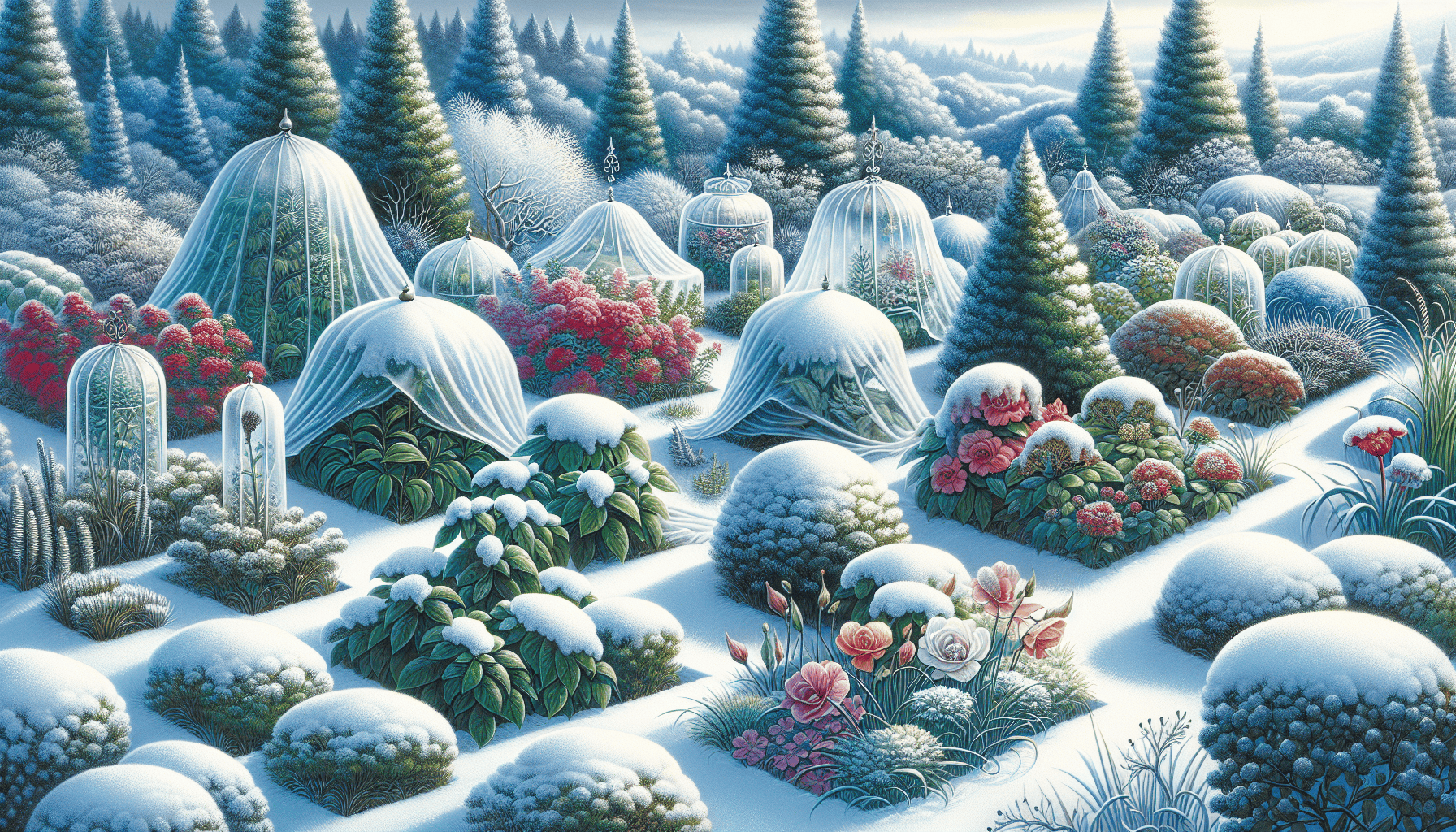
Safeguarding your garden plants from the severe cold of winter is essential for maintaining a thriving winter garden. Employing protective strategies like utilizing cloches, erecting row covers, and setting up cold frames can significantly extend your gardening season by offering protection against the chilly weather.
To ensure that your plants are well protected throughout the winter months, let’s delve into certain techniques designed to shield them during this period.
Mulching Techniques
Applying organic materials such as straw, shredded leaves, and wood chips around root vegetables can significantly increase their frost resistance. This winter mulching technique is beneficial for the plants’ survival in cold weather.
To ensure the maximum protective benefits of mulch, it should be put down following the initial severe frost of the season.
Frost Covers and Cloches
To safeguard delicate plants from the harm caused by frost, one can employ cloches and frost covers. It is crucial to ensure these plastic covers do not make contact with plant leaves as this can lead to cold being transferred to the foliage. Anchoring them firmly to the ground enhances their insulating capabilities.
By utilizing such methods, a consistent environment for plants that are susceptible to cold during winter months is preserved.
Extending the Growing Season
Maximizing productivity in your winter garden hinges on prolonging the growing season. By preparing garden beds ahead of time and employing unheated greenhouses, you can get a head start for spring planting, leading to an extended harvest.
By adopting these methods, you ensure continuous plant growth throughout colder climates and guarantee a fruitful garden all year long.
Utilizing Unheated Greenhouses
During the winter, an unheated greenhouse can afford sufficient protection to robust plant species, enabling their growth despite chillier conditions and also in regions with milder climates. This environment serves as a buffer for the plants against severe winter weather while still permitting sunlight to enter.
By orienting an unheated greenhouse towards the south, one can optimize solar heat absorption, which fosters continued plant development throughout the cold months.
Early Spring Planting
Getting your garden beds ready before the last frost occurs can give you a head start with spring planting. Ensuring that these preparations are done in advance means your plants will be set to begin growing once the weather starts to warm up.
By prepping early, you pave the way for crops to yield sooner, which stretches out your gardening activities into the earlier parts of spring and continues through summer.
Summary
Embracing a winter garden can yield an abundant harvest of fresh vegetables, herbs, and fruits even during the colder months. To achieve this, one must enrich the soil with organic matter before planting resilient crops in December. By employing protective measures such as cold frames and unheated greenhouses, it’s possible to prolong the growing season well into winter. Enjoy the advantages of having your own garden produce throughout the year. Wishing you joyful gardening!
Frequently Asked Questions
What are the best vegetables to plant in December?
Choosing to plant robust vegetables such as carrots, spinach, and kale in December is a wise decision since they can withstand the cooler temperatures.
As spring arrives, anticipate reaping a fresh bounty from your garden!
How can I protect my plants from winter weather?
To ensure the survival of your plants during winter, it’s crucial to shield them from cold weather. Implement protective measures such as utilizing cloches, row covers, and cold frames. After experiencing the initial severe frost, make sure to add mulch for extra insulation.
Can I grow herbs indoors during winter?
Certainly, cultivating herbs such as cilantro, parsley, and dill inside your home during winter is possible!
This practice offers an excellent means to enjoy fresh tastes throughout the colder season.
What fruits can be planted in December?
Commence planting raspberries, blueberries, and rhubarb in the month of December to ensure a bountiful yield during the warmer seasons.
Initiate this process today to later enjoy the fruitful outcomes of your efforts!
How do I extend the growing season in my winter garden?
Consider preparing your garden beds in advance and utilizing unheated greenhouses to lengthen the growing period of your winter garden.
Employing these methods will shield your plants from chilly temperatures, allowing for an uninterrupted yield throughout the season!

